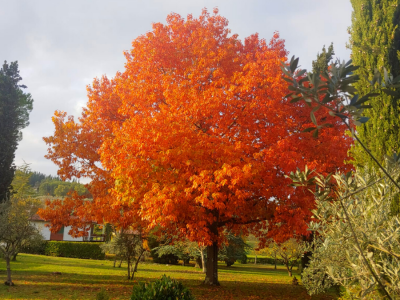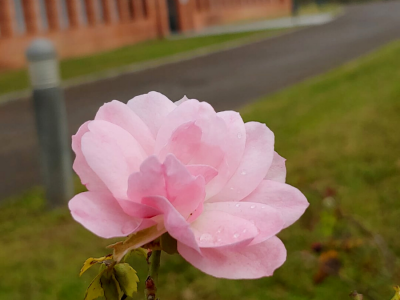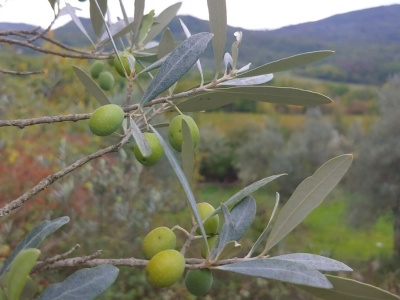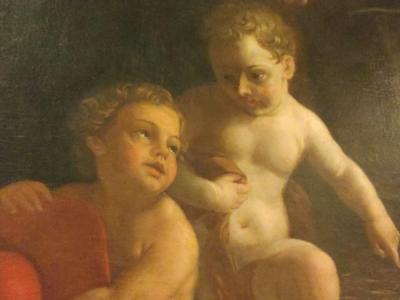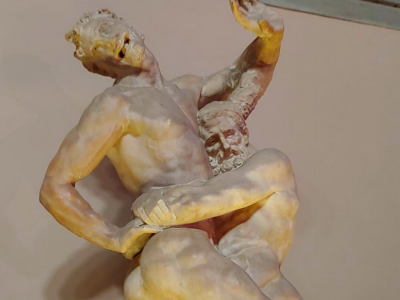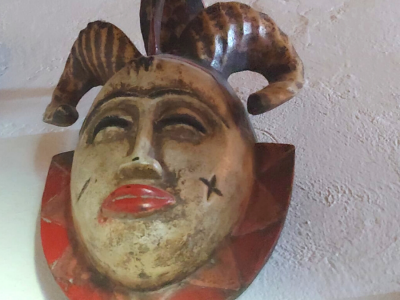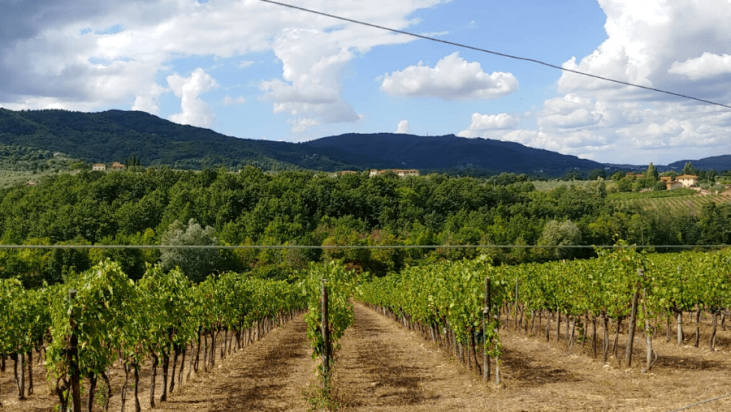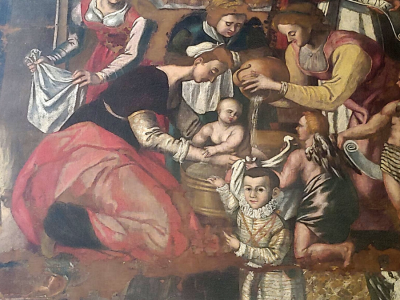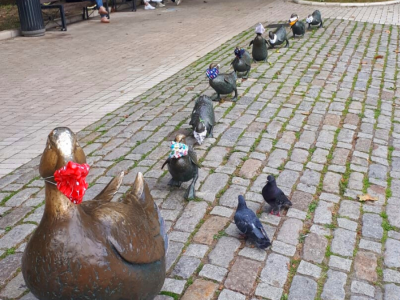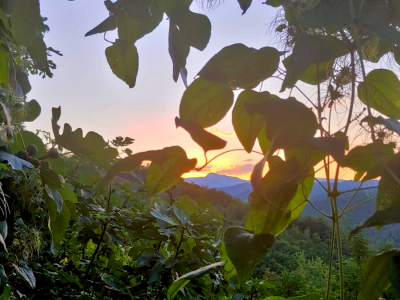stdClass Object
(
[id] => 18546
[title] => And breath became a Hallelujah
[alias] => and-breath-became-a-hallelujah
[introtext] => The soul and the harp/ 31 - Adam guardian of the whole world finally gives voice to the Earth and the universe
By Luigino Bruni
Published in Avvenire 01/11/2020
"My love, you who formed me in the image of the God who has no face, my Love who tenderly reassembled me after my ruin, my Love, behold, I surrender: I will be your eternal splendour"
David Maria Turoldo, The Psalms (I Salmi)
My commentary on the Psalter ends here today. And it ends with praise, a cosmic hymn to God. And with a great big thank you.
«Praise the Lord. Praise God in his sanctuary; praise him in his mighty heavens. Praise him for his acts of power; praise him for his surpassing greatness. Praise him with the sounding of the trumpet, praise him with the harp and lyre, praise him with timbrel and dancing, praise him with the strings and pipe, praise him with the clash of cymbals, praise him with resounding cymbals. Let everything that has breath praise the Lord. Praise the Lord» (Psalm 150).
[fulltext] => Hallelujah, praise the Lord, is the last word of the Psalter. It opened with "blessed is the one (man)" (Psalm 1.1), and now closes with Hallelujah (Psalm 150,6). It begins with God praising man and ends with man praising God (alleleu-Yah: we praise YHWH). Telling us that our whole life can be found between a "blessed" and a "Hallelujah". The Book of Psalms is in fact also a metaphor for human existence, winding through blessings, joy, pain, screams, curses, praises to finally arrive at the Halleluiah, which is sometimes also the last word of life; the one that follows amen. Because if it is already beautiful indeed to leave this world with a mild "so be it", it is even more so to leave it with a Hallelujah, with a last, infinite thank you.
The Jews call the Psalter the "Book of praises", the book of praising God and praising man, praising both across the psalms. Because if it is true that homo sapiens is an animal in need of praising, the Bible tells us that God also has the same need that we do, which he satisfies in the Book and then with the incarnation - "I praise you, Father, because ..." "Praise him" is repeated ten times in this psalm. Like the ten times "And God said" is repeated in Genesis (chap. 1), and like the ten words given to Moses on Mount Sinai. Praise is a different Law, that does not save us due to any of our acts or merits, but only because we are able to say one last Hallelujah, and then receive the same reward as the righteous.
Praise is also a new creation. If God created the world by saying it and continues to create it in every passing moment by saying it and repeating it, we, who were made in his image, create our world with our words, saying it, repeating it, blessing it or cursing it. We create and re-create it every morning, when we get up and at home say the names of our loved ones (if we say them, how we say them); and then saying the names of our colleagues, friends, up to the unknown names of those we quickly meet in a shop or at the bar. Praise is a performative word, which has the ability to modify the reality it praises. When we praise God, we make him more beautiful and splendid (at least within our soul), when we praise any person, we make him or her better and more beautiful (and not only within our soul). To despise any man or woman, to curse him or her with words, is always a very serious act, likewise those who praise God while despising other human beings actually pervert praise and prayer. In praising the God they cannot see while not praising they image that they in fact can see, they deny the very image.
Those who praise God should learn to praise men; they should travel around the world blessing every woman and every man they meet, knowing that the God they praised in the temple really sees them out in the streets. This inter-human praise is among the most beautiful anthropological exercises under the sun. Which also includes praising the sycophants, minions and flatterers, a very common practice, which never rings true and never leads to anything good, rendering both those who offer it and those who receive the praise decidedly worse. It is merely an answer to the request of recognition from others, by inventing a non-existent esteem, which keeps people blessed and deceived in perfect traps of poverty. However, there are also examples of sincere praise in the world, the kind of praise that, in certain decisive moments of life, identifies at least one true reason for goodness and beauty in another person. Because there is always a reason, namely us being made in the image of God, which is more constant than any of the scribbles, which we draw and design for us in the course of life. It knows how to find it; it does not stop digging until it reaches that hidden gem, and then praises it, using all the beautiful words it has learned to say it. How much suffering would cease on earth if we were capable of this true form of praise? This praise is a high form of exercise in agape, because it requires perseverance, patience, relational skill, respect for the timing and ways of the other person, and meekness. A single person capable of this kind of praise can save an entire community. This is the righteous one that Abraham was looking for in Sodom and could not find (Genesis 18). We, however, sometimes do find it, and know what it is truly worth. That is why praise is a global common good of the world, the civil patrimony of every community. Praising – both God and humans – makes us better, even those of us who do not know how to praise.
It is not difficult to recognize those who practice true praise. They are capable of silence, they know how to listen, they know how to celebrate, they can shed tears, they have a great emotional capital; they are moved by the pain of others and even when they touch beauty, they are humble, and they are always grateful. Together with the other four psalms of the Halleluiah, this last psalm is a praise to music and singing. It is a review of musical instruments, which are thus raised to great dignity. Who knows on what biblical basis musicians were devalued in the Middle Ages, or how it came to be that sacred music was prohibited around the Protestant Reformation? These psalms are also a praise to the makers of musical instruments, to the artisans, to the luthiers and to the entire great family of orchestral musicians and people who work with music. Thanks to these psalms, music became part of the languages of God; it is one of the languages with which the angels communicate with us and with each other, music turning into words. And, perhaps, every time a piece of music is performed on earth, God wakes up in heaven, turning around and listening with great interest.
It is not unlikely that this psalm was composed, or at the very least sung, during the Babylonian exile. An ode to the singing, to the musicians and to the choirs of the temple when the temple was no longer there, because it had been destroyed. But the psalms remained alive within the soul of the people, and so that poverty in fact produced a stupendous wealth, which ended up arriving full of life to us in our days because it was purified from any form of force or power. The beauty of these psalms of praise lies in their sober essentiality.
"Let everything that has breath praise the Lord". You could not find a more beautiful ending than this. Human praise extended to include all creation, the animals, the plants, all that is alive. In conclusion, the cosmic fraternity that has accompanied us in these months, returns. Human praise is essential but not enough for the Bible. And here we see Adam, guardian of the whole world, who gives voice to the praise of the Earth and the universe.
There is also a praise of life, a hallelujah of the breath. We are too accustomed to a voluntary based vision of faith, more stoic (and Pelagian) than Christian, which continually leads us to think that spiritual life is all a matter of effort, commitment and will, that it is all a matter of our effort and work. Then we read the psalms, we arrive at this very last verse and discover a different dimension of faith. We are the first praise, and we are so as living and created beings, who breathe, who still have that breath inoculated on them on that first day of creation, never again withdrawn: «The glory of God is man fully alive» (St. Irenaeus). Just like and even more so than the works of art, which are the first act of praise of artists.
Hence, that subjunctive - "Let everything… praise" - can change into an indicative: every being that breathes praises the Lord. The most important praise is who we are, not the words of praise we say. We can say words of praise because first, on a deeper and truer level, we are in fact praise. The birth of a child, the beauty of a girl, the dignity of an old man, an act of loyalty, a friend, are expressions of praise in themselves. Therefore, the good news is that praise on earth is much greater than the words of praise that we say. It then becomes immense, if we add the praise of the birds, the doe, the whale, the tree and the leaf, up to the infinite stars, et clarite et pretiose et belle. It is a silent, deponent, mild form of praise - what is milder than a birch or a dog's gentle eyes? - which reminds us all of the silent, deponent and mild dimension of our own praise. I the eyes of this cosmic and secular praise, the temple is a forest, an office, the heart of a finch, the sea, a whole galaxy. We do not create the most important realities of life with our actions or even with our words. They just are. Our creations are precious, sometimes almost essential. However, what is really essential is what it is, what we are, what life is because it is life. Because we are surrounded by infinite love, and we do not know it. Hallelujah!
Thus, we end this commentary on the Book of Psalms. We began during the first lockdown and we come to a close during an equally uncertain phase. In March, I chose to comment on the Psalms because I believed that the Psalter, with its praises and prayers, would be a good companion on the hard journey that awaited us. I hope this was really the case, at least to a certain extent. It certainly was for me. This time, like with the other nine biblical books I have commented on in recent years for the "Avvenire", I take my leave once again changed from the path taken, marked both in the flesh and in name. Each comment was and is a fight with the angel, leaving me feeling both blessed and wounded. Together with those who followed me, we learned or relearned how to pray, we understood that biblical praise and prayer were different from what we thought, and that they are in fact wonderful.
Thanks to all of you, readers, for the e-mails you wrote to me, one of the greatest joys of this job. Thank you, once again, and each time increasingly so, to Marco Tarquinio, who for years I have kept occupied every Saturday afternoon reading, titling, (the titles are almost always his), and correcting my articles, which are always longer than they should be. Without this both risky and generative reciprocity, I would never have started this strange new "job" of being an economist commentator of the Bible, a job that has changed my life.
l.bruni@lumsa.it
On behalf of many, I thank Luigino Bruni, who knows very well how year after year the titles of his articles have increasingly become part of our common work and effort. And our readers should know that the journey together will continue, of course. (mt)
Download article in pdf
[checked_out] => 0
[checked_out_time] => 0000-00-00 00:00:00
[catid] => 1007
[created] => 2020-11-01 01:34:23
[created_by] => 4501
[created_by_alias] => Luigino Bruni
[state] => 1
[modified] => 2021-02-27 11:13:43
[modified_by] => 609
[modified_by_name] => Super User
[publish_up] => 2020-11-23 02:05:02
[publish_down] => 0000-00-00 00:00:00
[images] => {"image_intro":"","float_intro":"","image_intro_alt":"","image_intro_caption":"","image_fulltext":"","float_fulltext":"","image_fulltext_alt":"","image_fulltext_caption":""}
[urls] => {"urla":false,"urlatext":"","targeta":"","urlb":false,"urlbtext":"","targetb":"","urlc":false,"urlctext":"","targetc":""}
[attribs] => {"article_layout":"","show_title":"","link_titles":"","show_tags":"","show_intro":"","info_block_position":"","info_block_show_title":"","show_category":"","link_category":"","show_parent_category":"","link_parent_category":"","show_associations":"","show_author":"","link_author":"","show_create_date":"","show_modify_date":"","show_publish_date":"","show_item_navigation":"","show_icons":"","show_print_icon":"","show_email_icon":"","show_vote":"","show_hits":"","show_noauth":"","urls_position":"","alternative_readmore":"","article_page_title":"","show_publishing_options":"","show_article_options":"","show_urls_images_backend":"","show_urls_images_frontend":"","spfeatured_image":"images\/2020\/11\/01\/L'anima-e-la-cetra-31.png","spfeatured_image_alt":"","post_format":"standard","gallery":"","audio":"","video":"","link_title":"","link_url":"","quote_text":"","quote_author":"","post_status":""}
[metadata] => {"robots":"","author":"","rights":"","xreference":""}
[metakey] =>
[metadesc] =>
[access] => 1
[hits] => 1331
[xreference] =>
[featured] => 1
[language] => en-GB
[on_img_default] =>
[readmore] => 10964
[ordering] => 1
[category_title] => EN - The soul and the harp
[category_route] => commenti-biblici/serie-bibliche/it-l-anima-e-la-cetra
[category_access] => 1
[category_alias] => en-the-soul-and-the-harp
[published] => 1
[parents_published] => 1
[lft] => 135
[author] => Luigino Bruni
[author_email] => lourdes.hercules.91@gmail.com
[parent_title] => IT - Serie bibliche
[parent_id] => 773
[parent_route] => commenti-biblici/serie-bibliche
[parent_alias] => serie-bibliche
[rating] => 0
[rating_count] => 0
[alternative_readmore] =>
[layout] =>
[params] => Joomla\Registry\Registry Object
(
[data:protected] => stdClass Object
(
[article_layout] => _:default
[show_title] => 1
[link_titles] => 1
[show_intro] => 1
[info_block_position] => 0
[info_block_show_title] => 1
[show_category] => 1
[link_category] => 1
[show_parent_category] => 1
[link_parent_category] => 1
[show_associations] => 0
[flags] => 1
[show_author] => 0
[link_author] => 0
[show_create_date] => 1
[show_modify_date] => 0
[show_publish_date] => 1
[show_item_navigation] => 1
[show_vote] => 0
[show_readmore] => 0
[show_readmore_title] => 0
[readmore_limit] => 100
[show_tags] => 1
[show_icons] => 1
[show_print_icon] => 1
[show_email_icon] => 1
[show_hits] => 0
[record_hits] => 1
[show_noauth] => 0
[urls_position] => 1
[captcha] =>
[show_publishing_options] => 1
[show_article_options] => 1
[save_history] => 1
[history_limit] => 10
[show_urls_images_frontend] => 0
[show_urls_images_backend] => 1
[targeta] => 0
[targetb] => 0
[targetc] => 0
[float_intro] => left
[float_fulltext] => left
[category_layout] => _:blog
[show_category_heading_title_text] => 0
[show_category_title] => 0
[show_description] => 0
[show_description_image] => 0
[maxLevel] => 0
[show_empty_categories] => 0
[show_no_articles] => 1
[show_subcat_desc] => 0
[show_cat_num_articles] => 0
[show_cat_tags] => 1
[show_base_description] => 1
[maxLevelcat] => -1
[show_empty_categories_cat] => 0
[show_subcat_desc_cat] => 0
[show_cat_num_articles_cat] => 0
[num_leading_articles] => 0
[num_intro_articles] => 14
[num_columns] => 2
[num_links] => 0
[multi_column_order] => 1
[show_subcategory_content] => -1
[show_pagination_limit] => 1
[filter_field] => hide
[show_headings] => 1
[list_show_date] => 0
[date_format] =>
[list_show_hits] => 1
[list_show_author] => 1
[list_show_votes] => 0
[list_show_ratings] => 0
[orderby_pri] => none
[orderby_sec] => rdate
[order_date] => published
[show_pagination] => 2
[show_pagination_results] => 1
[show_featured] => show
[show_feed_link] => 1
[feed_summary] => 0
[feed_show_readmore] => 0
[sef_advanced] => 1
[sef_ids] => 1
[custom_fields_enable] => 1
[show_page_heading] => 0
[layout_type] => blog
[menu_text] => 1
[menu_show] => 1
[secure] => 0
[helixultimatemenulayout] => {"width":600,"menualign":"right","megamenu":0,"showtitle":1,"faicon":"","customclass":"","dropdown":"right","badge":"","badge_position":"","badge_bg_color":"","badge_text_color":"","layout":[]}
[helixultimate_enable_page_title] => 1
[helixultimate_page_title_alt] => The soul and the harp
[helixultimate_page_subtitle] => Biblical Commentaries
[helixultimate_page_title_heading] => h2
[page_title] => The soul and the harp
[page_description] =>
[page_rights] =>
[robots] =>
[access-view] => 1
)
[initialized:protected] => 1
[separator] => .
)
[displayDate] => 2020-11-01 01:34:23
[tags] => Joomla\CMS\Helper\TagsHelper Object
(
[tagsChanged:protected] =>
[replaceTags:protected] =>
[typeAlias] =>
[itemTags] => Array
(
)
)
[slug] => 18546:and-breath-became-a-hallelujah
[parent_slug] => 773:serie-bibliche
[catslug] => 1007:en-the-soul-and-the-harp
[event] => stdClass Object
(
[afterDisplayTitle] =>
[beforeDisplayContent] =>
[afterDisplayContent] =>
)
[text] => The soul and the harp/ 31 - Adam guardian of the whole world finally gives voice to the Earth and the universe
By Luigino Bruni
Published in Avvenire 01/11/2020
"My love, you who formed me in the image of the God who has no face, my Love who tenderly reassembled me after my ruin, my Love, behold, I surrender: I will be your eternal splendour"
David Maria Turoldo, The Psalms (I Salmi)
My commentary on the Psalter ends here today. And it ends with praise, a cosmic hymn to God. And with a great big thank you.
«Praise the Lord. Praise God in his sanctuary; praise him in his mighty heavens. Praise him for his acts of power; praise him for his surpassing greatness. Praise him with the sounding of the trumpet, praise him with the harp and lyre, praise him with timbrel and dancing, praise him with the strings and pipe, praise him with the clash of cymbals, praise him with resounding cymbals. Let everything that has breath praise the Lord. Praise the Lord» (Psalm 150).
[jcfields] => Array
(
)
[type] => intro
[oddeven] => item-odd
)
